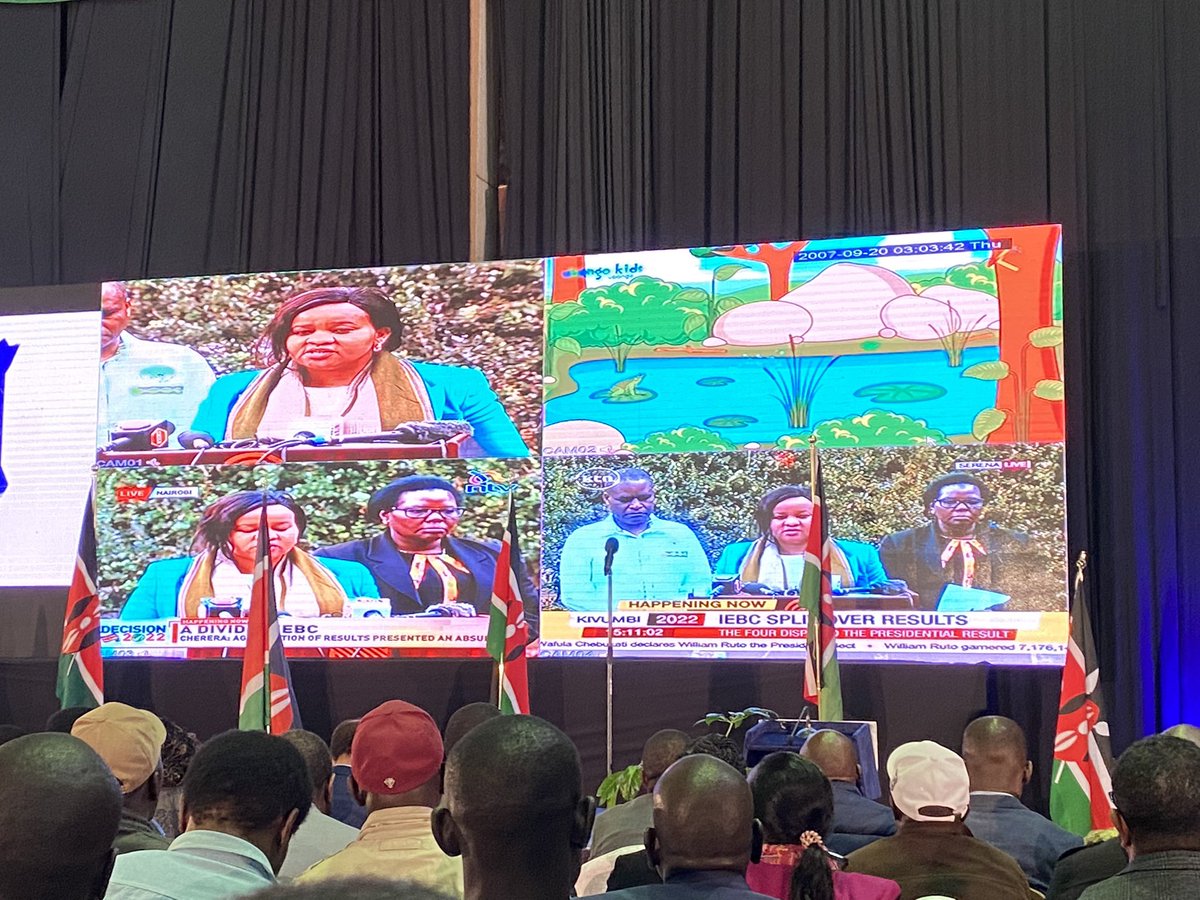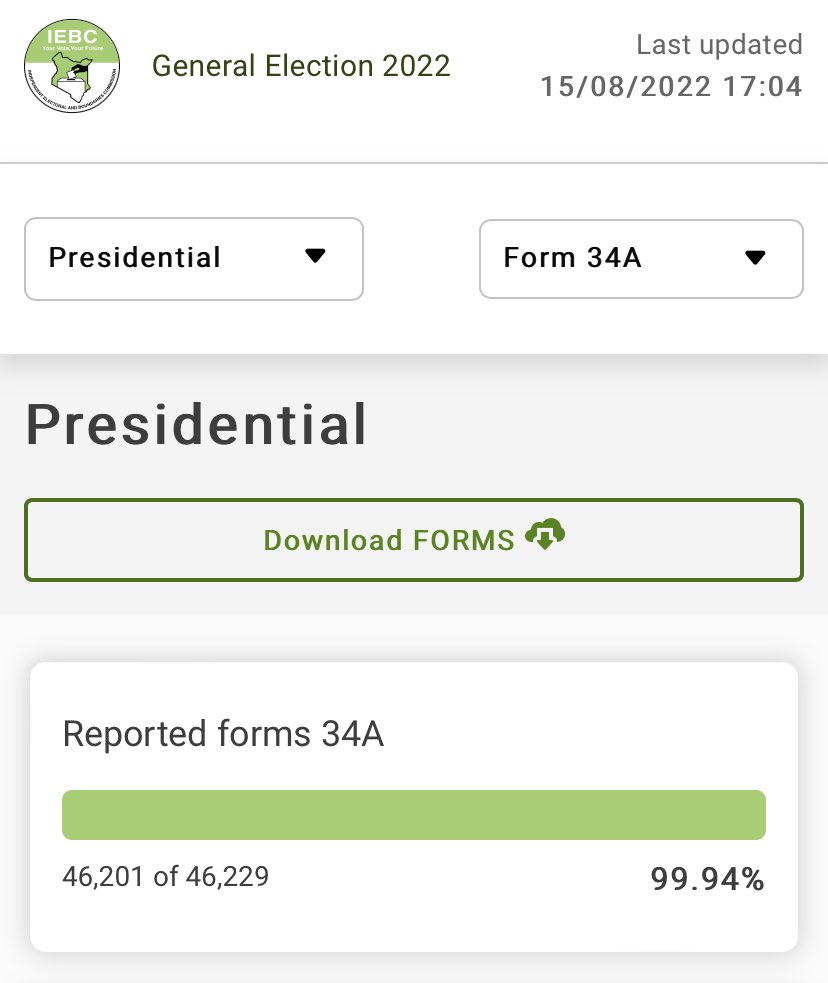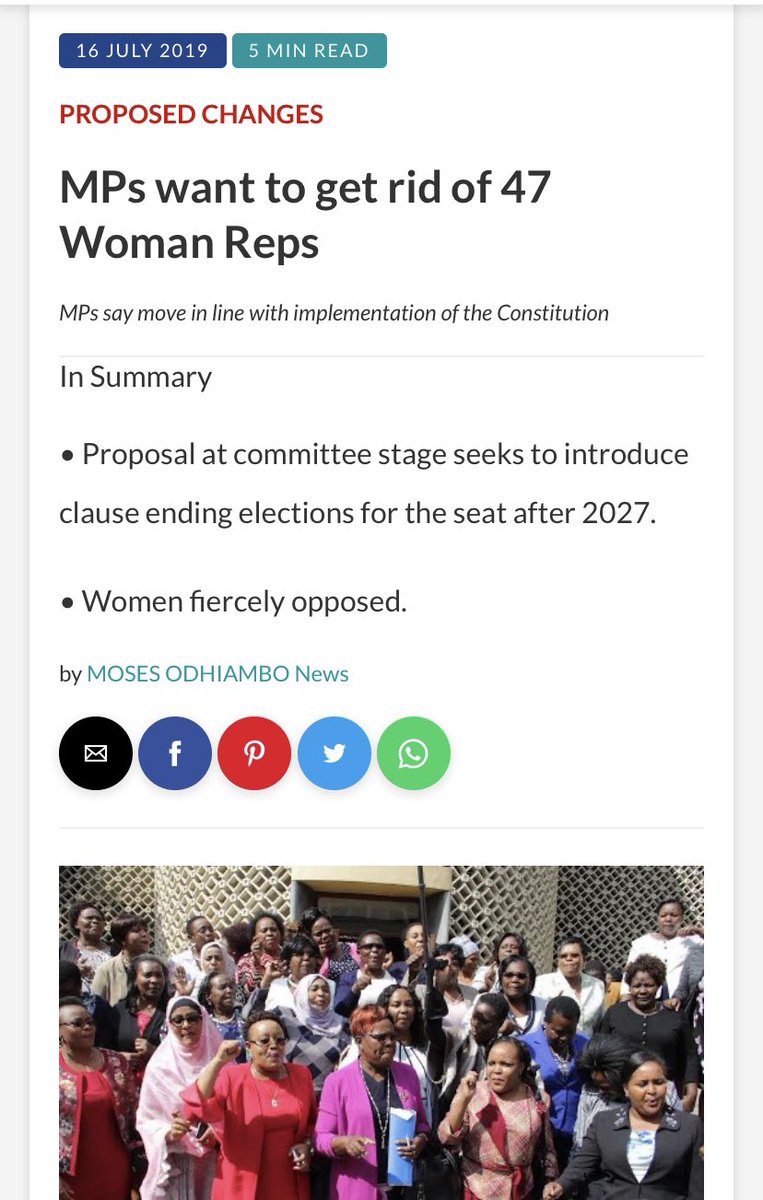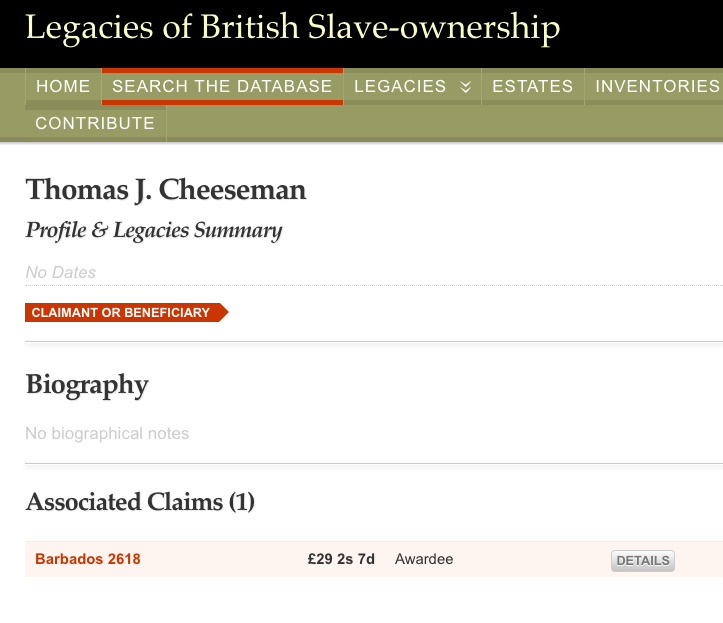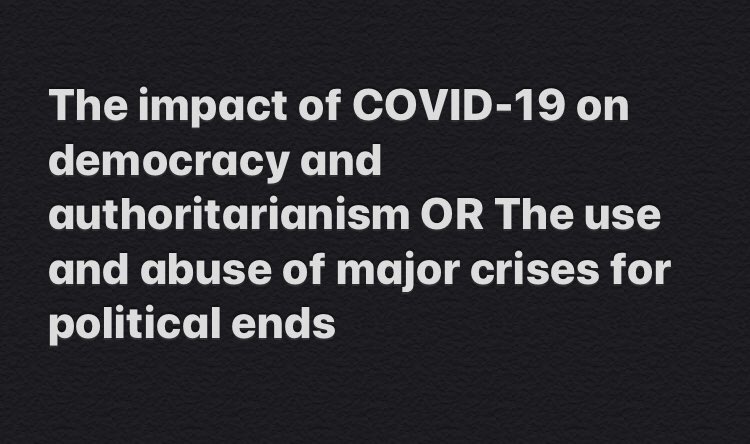
Having fact checked + challenged some election rigging accusations, it is worth making it clear that the election was not perfect
There are areas where @IEBCKenya will want to perform better next time + make for reasonable criticism
Here are a few:
🧵1/5
#KenyanElection2022
There are areas where @IEBCKenya will want to perform better next time + make for reasonable criticism
Here are a few:
🧵1/5
#KenyanElection2022

1. There was inconsistent use of the manual register in some areas. This seems to have been because court decisions changed the process twice *after* the IEBC completed training, so maybe not IEBC's "fault", but it is nonetheless an inconsistency
citizen.digital/news/court-of-…
citizen.digital/news/court-of-…
2. The IEBC did a much much better job with the digital scans of forms 34A and forms 34B than in 2017, which is great, but it is still the case that the portal is missing 28 forms 34A (though, as of now, is not missing any forms 34B).
This is an area for further improvement.

This is an area for further improvement.


3. It is also true that a small number of forms 34A have not been filled out perfectly, and there seem to be some small addition errors. The same is true of some forms 34B, which in a number of cases have not been scanned properly so it is not possible to see important details.
This suggests the need for further training of officials on how to complete and scan in both types of forms. At present, it is not a strong indication of malpractice, however, as we have yet to see evidence that any numbers were changed as forms were entered into the portal
4. Related to this, as there are some small addition errors in forms 34A, there are also some small issues related the final results. Most notably, there is a *small* difference between the vote tallies of the 4 pres candidates and the number of valid votes (these should match). 
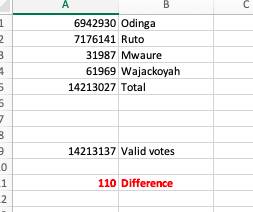
The difference is very small (110) and so has no impact on the outcome of the election, but as these numbers should match further work is required to make sure that there are no small addition errors on forms 34A and B.
5. The IEBC has not helped itself by making verbal mistakes when reading out numbers at Bomas. This happened with the Kiambu result, when the figure on form 34B was correct but incorrectly read out to the audience. The turnout of the election was also given in different ...
... formats at different times, which has created some confusion and enabled those seeking allege rigging to use numbers from a certain time and modalities (eg the KIEMS kit totals rather than KIEMS + manual) to suggest that votes either appeared or disappeared ...
.. in reality, it no votes appeared/disappeared in Kiambu, it was just a verbal mistake by the person reading the figure out. This is understandable given the pressure, but IEBC could be more careful + project the written numbers at the same time as announcing to ...
... avoid confusion and to enable any mistakes to be quickly corrected before the media has communicated them to the wider public. With the turnout figures, and indeed with many issues in the build up to the elections, the IEBC could also communicate more effectively.
6. The KPMG audit raised a number of issues and found that the voters roll had significant numbers of dead voters and duplicate voters. IEBC undertook to address these issues so they should not have effected the final register, but these things should really be fixed *before* ...
... the audit. Otherwise it almost feels like the IEBC is relying on the audit to pick up issues, rather than doing things like de-duplication and removing dead voters, which should be a basic task and part of core procedures for an electoral commission.
I'll add more later, but it is also important to say at this point that many of the allegations made about election rigging, including by the 4 "Serena" commissioner's, have no evidence to back them up.
Some of them are fact checked here:
democracyinafrica.org/fact-checking-…
Some of them are fact checked here:
democracyinafrica.org/fact-checking-…
Also important to state that getting 46,201 digital scans onto a public portal within days of an election, with many of them up within 24 hours, is impressive
There are many many elections in "established" democracies that do not achieve this logistical feat of transparency
👏
There are many many elections in "established" democracies that do not achieve this logistical feat of transparency
👏
Ok starting again …
7. Problems with ballot papers led to sub-national elections being postponed, including the Governorship race in Mombasa and Kakamega.
Hard to know for sure, but this could have led to lower turnout for the presidential race …
nation.africa/kenya/counties…
7. Problems with ballot papers led to sub-national elections being postponed, including the Governorship race in Mombasa and Kakamega.
Hard to know for sure, but this could have led to lower turnout for the presidential race …
nation.africa/kenya/counties…
… and hence hurt the leading presidential candidate in these areas (eg Odinga in Mombasa).
Printing so many different ballot papers is a challenge, but one IEBC should be able to comfortably manage, especially having had to do so in both 2013 and 2017.
Printing so many different ballot papers is a challenge, but one IEBC should be able to comfortably manage, especially having had to do so in both 2013 and 2017.
8. It appears that some individuals whose fingerprints could not be read on the KIEMS kit were denied the right to vote, despite the fact that there is a received and established procedure for these cases.
This again suggests the need for further …
nation.africa/kenya/counties…
This again suggests the need for further …
nation.africa/kenya/counties…
… training and work to ensure unity of practice across the entire election.
This is quite a serious issue as it speaks to constitutional issues such as the right to vote and the right of all Kenyans to political equality.
This is quite a serious issue as it speaks to constitutional issues such as the right to vote and the right of all Kenyans to political equality.
9. Some polling stations opened late, meaning that voters had longer queues and in some cases had to vote into the evening.
This is partly due to the fact that the timetable often becomes very compressed due to court cases and late changes in names …
kbc.co.ke/poll-day-marre…
This is partly due to the fact that the timetable often becomes very compressed due to court cases and late changes in names …
kbc.co.ke/poll-day-marre…
… of candidates contesting for different elections, but this should be anticipated by IEBC so that key deadlines are brought forwards to enable all essential equipment including ballot papers to be prepared and checked - and double checked - ahead of time.
Worth noting in …
Worth noting in …
… this regard that this responsibility is shared with the Kenyan government, which needs to provide the budget requested by IEBC and to do so in a timely fashion.
This has not always happened in the past …
allafrica.com/stories/202109…
This has not always happened in the past …
allafrica.com/stories/202109…
• • •
Missing some Tweet in this thread? You can try to
force a refresh




